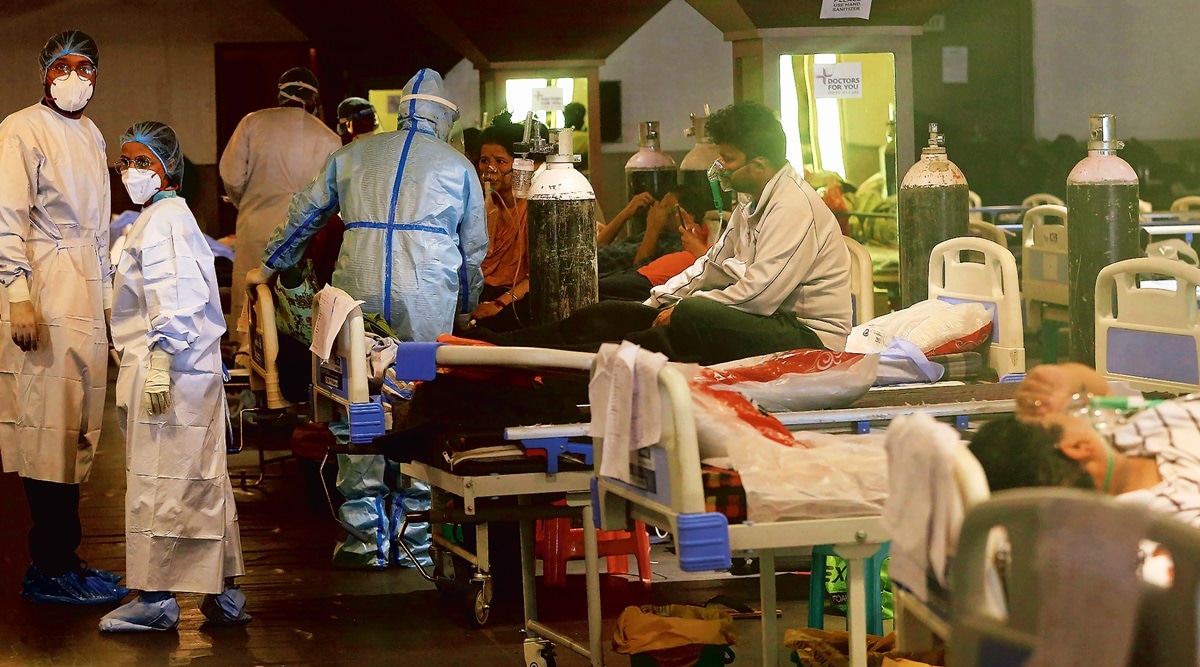 It is not surprising that K P Shankaran, the author of the article in question, should find the treatment he, his wife and his sister-in-law received at a government hospital to be excellent
It is not surprising that K P Shankaran, the author of the article in question, should find the treatment he, his wife and his sister-in-law received at a government hospital to be excellent It is surprising that a former teacher of philosophy at St Stephen’s College would present a contrast between two scenarios — one deeply personal, and the other his sharply visceral idea of what is happening in India (‘Lessons from a Kerala Covid ward’, IE, June 19) — and believe it is a sound comparison. Being a fiercely loyal person from Kerala myself, I have been proud of many things in the state that were in existence long before the party system and an independent India came into being. The Maharajas in feudal times were highly educated and enlightened, instilling the need for education in the people. Women in Kerala achieved the highest degree of literacy before other states. The matriarchal system prevailed in certain communities and women achieved many firsts in public positions of importance. Its plentiful water allowed for cleanliness in daily living, and wealth was not displayed through flamboyant lifestyles and outward displays. Despite belonging to a highly-placed household, we often slept on the floor on hand-woven grass mats, and would eat off banana leaves. The lack of industrial development led to many Malayalis fleeing to the Gulf countries.
It is not surprising that K P Shankaran, the author of the article in question, should find the treatment he, his wife and his sister-in-law received at a government hospital to be excellent. Two-thirds of the article had details of their collective ailments and treatments, before arriving at his main point that if it were not for the Ram Temple and the proposed new Parliament House, or the Statue of Unity being built, and India becoming the Hindu version of Islamist Pakistan, all of India could be as unique as that hospital.
It is tragic how a professor could be so ill-informed about what is happening in the rest of India. First and foremost, India is a nation of states and health is a state subject. The condition of hospitals depends very much on the competence and priorities of each state government and there are no statistics to show hospitals are better in non-BJP ruled states. It is an entirely mixed bag and religion does not enter the picture. The All India Institute of Medical Science, a national institution under the central government, is considered among the finest hospitals anywhere, with the very best doctors and treatment. Presidents, prime ministers and ordinary folk have been treated equally well there. Replicas have been initiated in many states. In terms of treatment, I have not had a single person, whether well-placed or from the poor working classes, complain about the efficiency, cleanliness and caring behaviour of government personnel in vaccination centres across the country. A small centre in the heart of the crowded area of Bhogal in New Delhi was silently and efficiently managed entirely by police personnel, with two nurses administering the jabs.
As for education, the government schools in Delhi are held up as an example of good education. The New Education Policy is visionary if implemented by all states with the proper infrastructure, syllabi and personnel. Many states have high literacy levels for historical and cultural reasons. These are not getting affected by the new Parliament building or other developments listed by the author. The Statue of Unity highlights the great contribution of Sardar Vallabhbhai Patel, who put modern India together as one unified country, assisted by his Malayali lieutenant V P Menon. He had been relegated to a non-entity by the Nehru-Gandhi regime. Now the area around the statue in Gujarat has become a magnet for tourists and sustains multiple livelihoods.
The author speaks of multiple government buildings “bearing distinctly Hindu designs”. India’s artistic heritage is often a multicultural amalgam with even British and Persian motifs, but largely stems from layers of ancient civilisations, far beyond any religious labels. Even if India’s artistic heritage is largely Hindu, should it be rejected as non-secular and sectarian?
Of course, eternal vigilance to defend the true nature of every Indian is necessary, but only if people like Shankaran take off their myopic lenses and see the entirety of India for what it really is — a democratic, secular and peace-loving country.
The writer is former president, Samata Party
- The Indian Express website has been rated GREEN for its credibility and trustworthiness by Newsguard, a global service that rates news sources for their journalistic standards.

